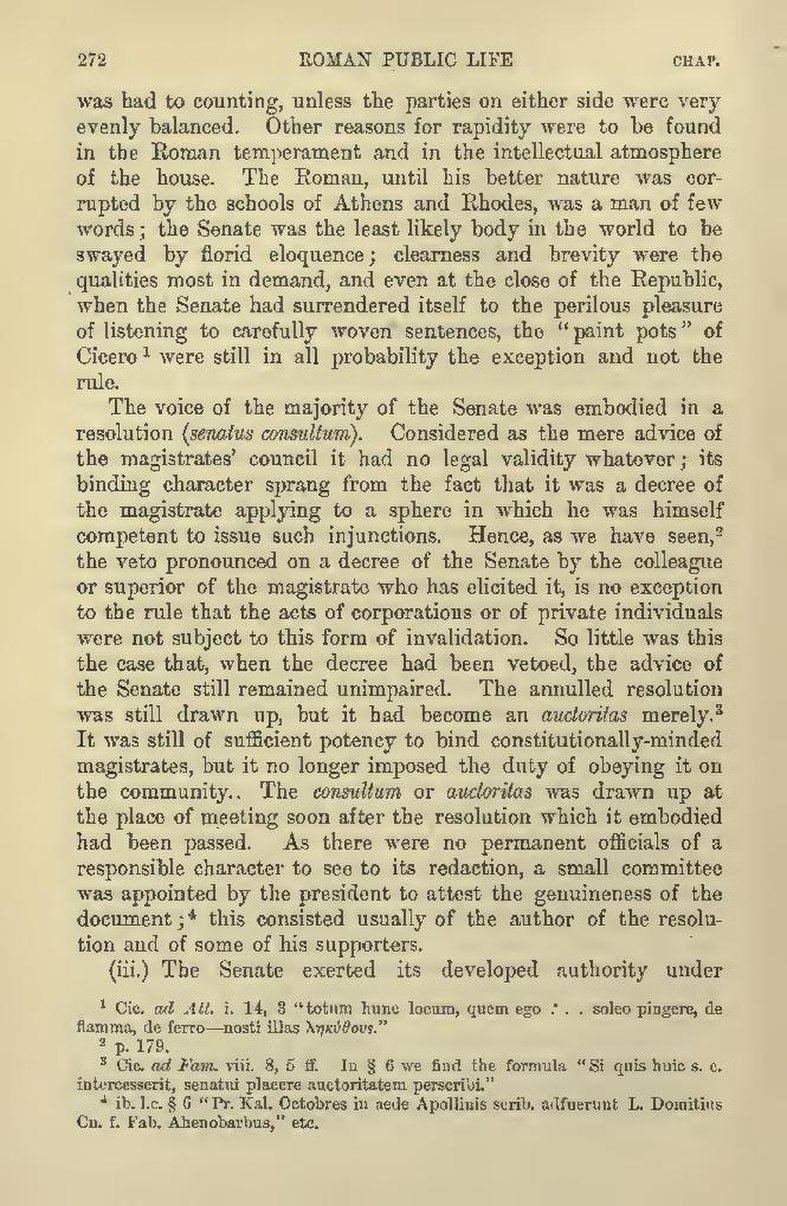was had to counting, unless the parties on either side were very evenly balanced. Other reasons for rapidity were to be found in the Roman temperament and in the intellectual atmosphere of the house. The Roman, until his better nature was corrupted by the schools of Athens and Rhodes, was a man of few words; the Senate was the least likely body in the world to be swayed by florid eloquence; clearness and brevity were the qualities most in demand, and even at the close of the Republic, when the Senate had surrendered itself to the perilous pleasure of listening to carefully woven sentences, the "paint pots" of Cicero[1] were still in all probability the exception and not the rule.
The voice of the majority of the Senate was embodied in a resolution (senatus consultum). Considered as the mere advice of the magistrates' council it had no legal validity whatever; its binding character sprang from the fact that it was a decree of the magistrate applying to a sphere in which he was himself competent to issue such injunctions. Hence, as we have seen,[2] the veto pronounced on a decree of the Senate by the colleague or superior of the magistrate who has elicited it, is no exception to the rule that the acts of corporations or of private individuals were not subject to this form of invalidation. So little was this the case that, when the decree had been vetoed, the advice of the Senate still remained unimpaired. The annulled resolution was still drawn up, but it had become an auctoritas merely.[3] It was still of sufficient potency to bind constitutionally-minded magistrates, but it no longer imposed the duty of obeying it on the community.. The consultum or auctoritas was drawn up at the place of meeting soon after the resolution which it embodied had been passed. As there were no permanent officials of a responsible character to see to its redaction, a small committee was appointed by the president to attest the genuineness of the document;[4] this consisted usually of the author of the resolution and of some of his supporters.
(iii.) The Senate exerted its developed authority under."]
- ↑ Cic. ad Att. i. 14, 3 "totum hunc locum, quem ego . . . soleo pingere, de flamma, de ferro—nosti illas [Greek: lêkythous
- ↑ p. 179.
- ↑ Cic. ad Fam. viii. 8, 5 ff. In § 6 we find the formula "Si quis huic s. c. intercesserit, senatui placere auctoritatem perscribi."
- ↑ ib. l.c. § 6 "Pr. Kal. Octobres in aede Apollinis scrib. adfuerunt L. Domitius Cn. f. Fab. Ahenobarbus," etc.
